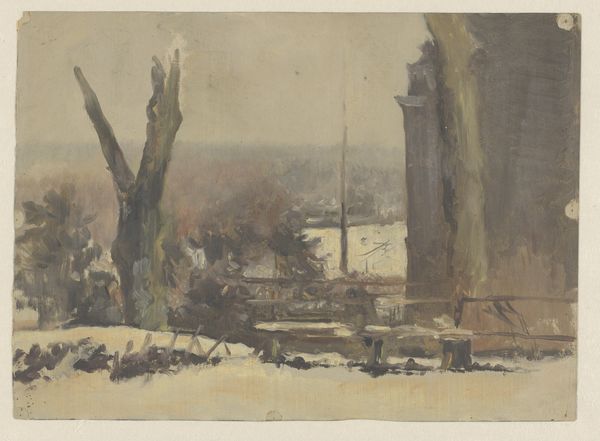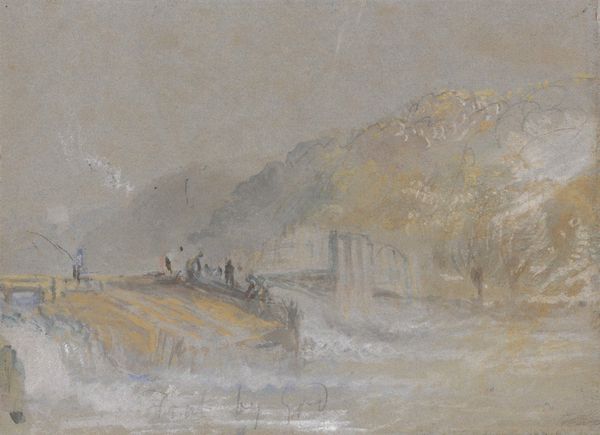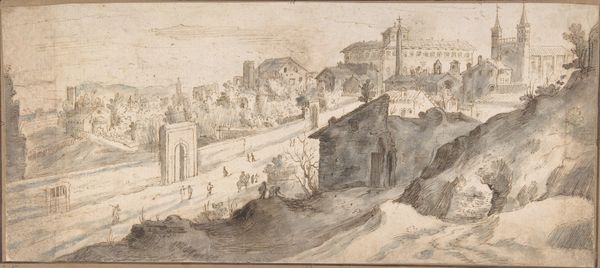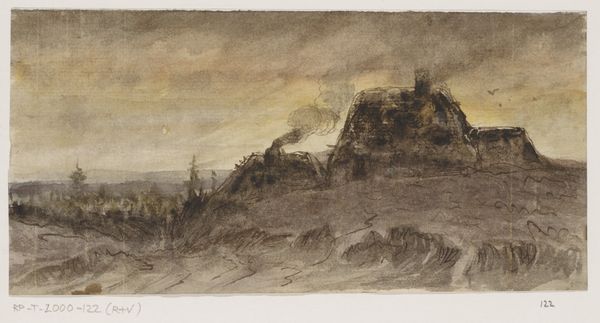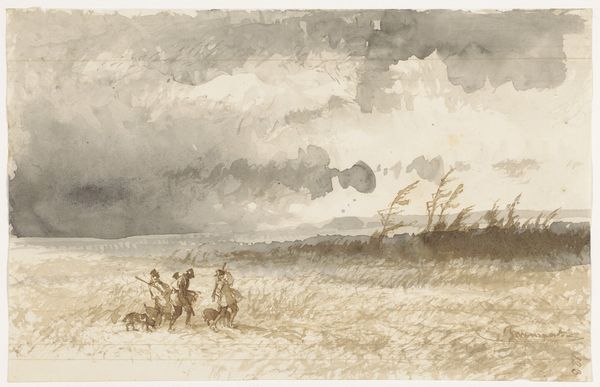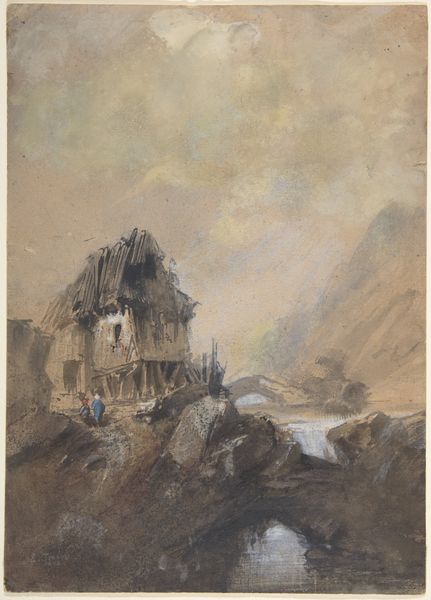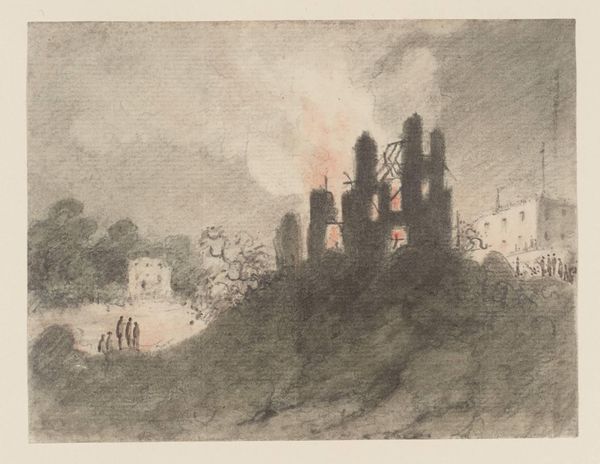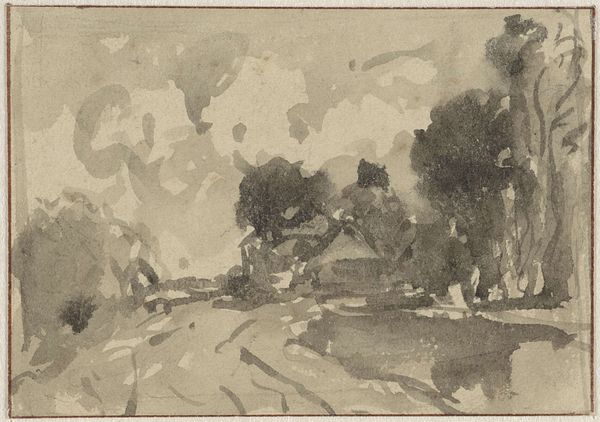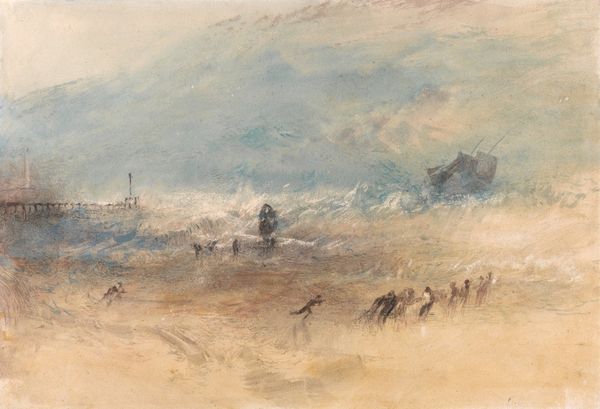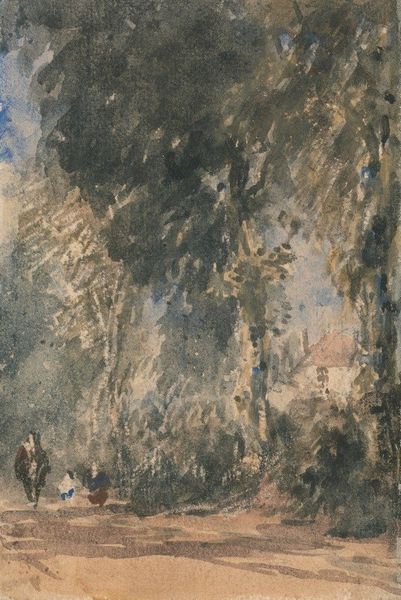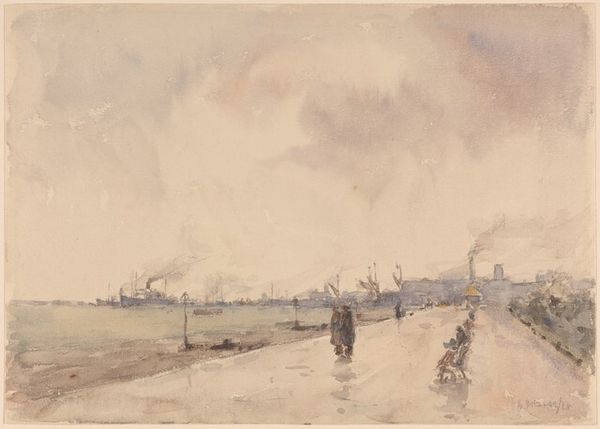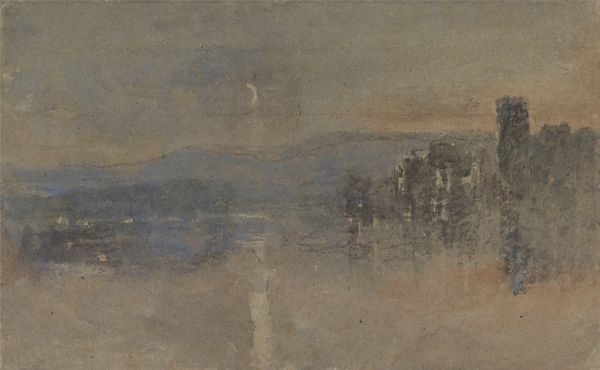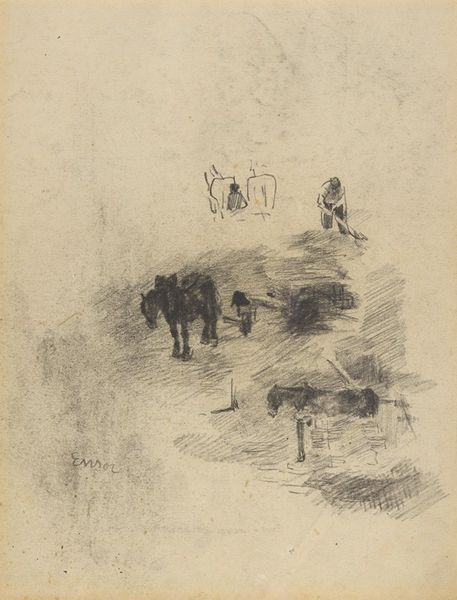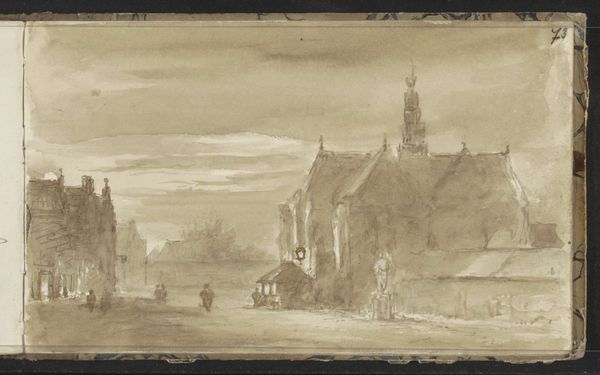
Copyright: Public Domain: Artvee
Editor: This watercolor, "Nocturne: Amsterdam in Winter," painted in 1882 by James Abbott McNeill Whistler, evokes such a hazy, dreamlike quality. I am intrigued by how indistinct everything appears, and the more I study it, the more ghostly it becomes. What social or political tensions can you discern, Curator? Curator: That feeling of the ghostly is quite potent. The late 19th century was a period of massive urban transformation, wasn't it? Consider the rapid industrialization impacting social classes, gender roles, even the very air people breathed. Does this nocturne, with its muted palette and figures obscured in the gloom, echo any of those tensions for you? What commentary do you think it provides about identity or place? Editor: It's interesting to think of it that way. I was initially just seeing a pretty picture, but perhaps that vagueness reflects the instability of the era. Are you suggesting Whistler intentionally blurred those societal markers, leveling identities beneath a shared sense of… unease? Curator: Precisely. Whistler and other Impressionists were often accused of not depicting “real life”. Yet, in a world being redefined daily, what even constituted “real life”? By focusing on mood and atmosphere rather than precise details, might he be offering a critique of the relentless drive for progress? Or is he simply exploring the subjective experience of modernity, finding beauty in the ephemeral and the uncertain? Editor: That makes me rethink the role of art during times of change. It isn't always about capturing reality; sometimes, it's about capturing a feeling, a shared uncertainty. Curator: Exactly! This painting is far more than just a pretty cityscape; it's a reflection of anxieties, and of the ever-changing role of art. Hopefully, these themes prompt broader thinking about how artworks communicate beyond just their surface aesthetics. Editor: This makes me wonder about art's potential as activism, maybe less direct protest, but rather the questioning of reality itself! Thanks, that was fascinating.
Comments
No comments
Be the first to comment and join the conversation on the ultimate creative platform.
